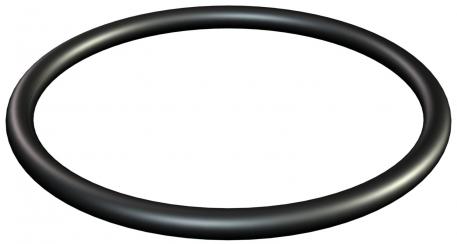The sealing surface of the valve is often corroded, eroded and worn by the medium, so it is a part that is easily damaged on the valve. Such as pneumatic ball valve and electric butterfly valve and other automatic valves, due to frequent and fast opening and closing, their quality and service life are directly affected. The basic requirement of the valve sealing surface is that the valve can ensure safe and reliable sealing under the specified working conditions. Therefore, the material of the surface should have the following features:
(1) Good sealing performance, that is, the sealing surface should be able to prevent the leakage of the medium;
(2) Has certain strength, the sealing surface should be able to withstand the specific pressure value of the sealing formed by the medium pressure difference;
(3) Corrosion resistance, under the long-term service of corrosive medium and stress, the sealing surface should have strong corrosion resistance that is compatible with the design requirements;
(4) The ability to resist scratches, the valve sealing are all dynamic seals, and there is friction between the sealing during the opening and closing process;
(5) Erosion resistance, the sealing surface should be able to resist the erosion of high-speed media and the collision of solid particles;
(6) Good thermal stability, the sealing surface should have sufficient strength and oxidation resistance at high temperature, and should have good cold brittle resistance at low temperature;
(7) Good processing performance, easy to manufacture and maintain, the valve is used as a general-purpose component, and it is guaranteed to have economic value.
The use conditions and selection principles of valve sealing surface materials. The sealing surface materials are divided into two categories: metal and non-metal. The applicable conditions of commonly used materials are as follows:
(1) Rubber. It is generally used for the sealing condition of low-pressure soft-sealed gate valves, diaphragm valves, butterfly valves, check valves and other valves.
(2) Plastic. The plastics used for the sealing surface are nylon and PTFE, which have the characteristics of good corrosion resistance and small friction coefficient.
(3) Babbitt. Also known as bearing alloy, it has good corrosion resistance and good running-in ability. It is suitable for the sealing surface of the shut-off valve for ammonia with low pressure and temperature of -70-150℃.
(4) Copper alloy. It has good wear resistance and certain heat resistance. It is suitable for globe valve, cast iron gate valve and check valve, etc. It is generally used for water and steam with low pressure and temperature not higher than 200℃.
(5) Chrome-nickel stainless steel. It has good corrosion resistance, erosion resistance and heat resistance. Suitable for media such as vapor nitric acid.
(6) Chrome stainless steel. It has good corrosion resistance and is usually used in valves with high pressure and temperature not higher than 450 ℃ for oil, water vapor and other media.
(7) High chromium surfacing steel. It has good corrosion resistance and work hardening performance, and is suitable for high pressure, high temperature oil, steam and other media.
(8) Nitrided steel. It has good corrosion resistance and scratch resistance, and is usually used in thermal power station gate valves. This material can also be selected for the sphere of hard-sealed ball valves.
(9) Carbide. It has good comprehensive properties such as corrosion resistance, erosion resistance and scratch resistance, and has a long service life. It is an ideal sealing material. Commonly used tungsten drill alloy and drill base alloy surfacing electrodes, etc., can make ultra-high pressure, ultra-high temperature sealing surface, suitable for oil, oil, gas, hydrogen and other media.
(10) Spray welding alloy. There are cobalt-based alloys, nickel-based alloys, and chin-based alloys, which have good corrosion resistance and wear resistance.
In order to ensure the safety and reliability of the valve seal, the selected material must be determined according to the specific working conditions. If the medium is highly corrosive, when selecting materials, it should meet the corrosive performance at first, and then meet the requirements of other properties; The seal of the gate valve should pay attention to good scratch resistance; Safety valves, throttle valves and regulating valve are most easily eroded by the medium, and materials with good corrosion resistance should be selected; For the inlaid structure of the sealing ring and the body, materials with high hardness should be considered as the sealing surface; General valves with low temperature and pressure should select rubber and plastic with good sealing performance as sealing; When selecting the sealing material, it should be noted that the hardness of the surface of the valve seat should be higher than that of the sealing surface of the valve disc.
Post time: Nov-02-2022

